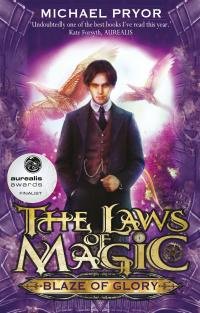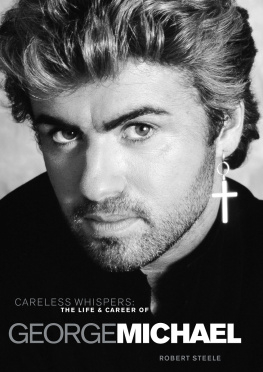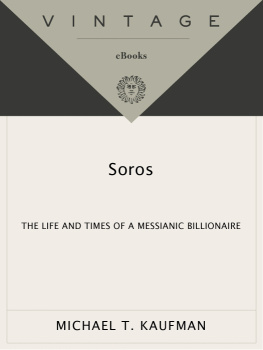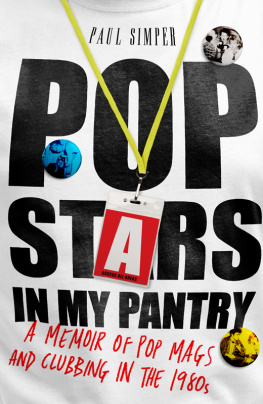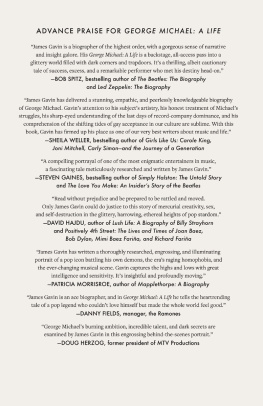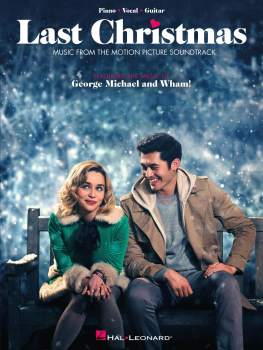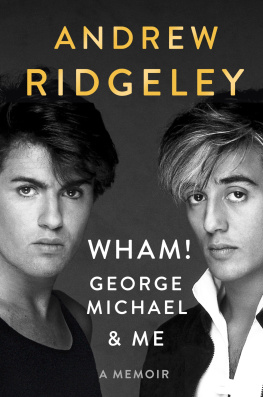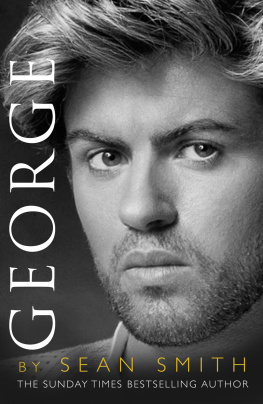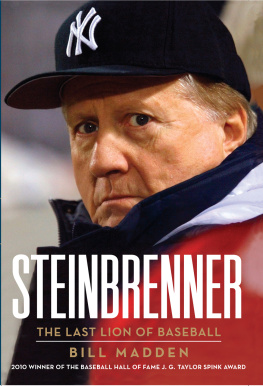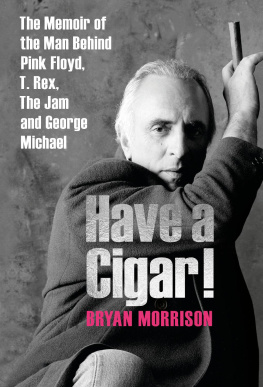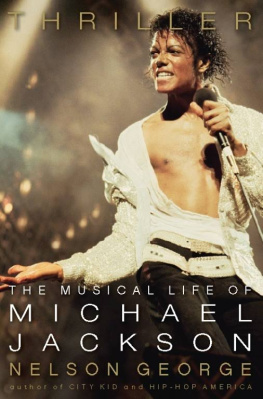*****************************************************
*****************************************************
Your ebook has decrypted.
The TXT file just save 20% of ebook content.
Please register the software, then get all contents and the valid ebook format.
*****************************************************
*****************************************************
George Michael: The biography AuthorJovanovic, Rob ASINB010MDNJCA ISBN9780349411248
Generate FromeCore v0.9.6.652 [ http://www.epubor.com/ecore.html ]
Technology Websitehttp://www.epubor.com
Also by Rob Jovanovic:
Kate Bush: The Biography
Michael Stipe: The Biography
Big Star: Rocks Forgotten Band
Nirvana: The Complete Recording Sessions
Perfect Sound Forever: The Story of Pavement
Adventures in Hi-Fi: The Complete REM
Beck! On a Backwards River
Copyright
Published by Piatkus
ISBN: 978-0-3494-1124-8
Copyright 2007 by Rob Jovanovic
The moral right of the author has been asserted.
All rights reserved. No part of this publication may be reproduced, stored in a retrieval system, or transmitted, in any form or by any means, without the prior permission in writing of the publisher.
The publisher is not responsible for websites (or their content) that are not owned by the publisher.
Piatkus
Little, Brown Book Group
Carmelite House
50 Victoria Embankment
London EC4Y 0DZ
www.littlebrown.co.uk
www.hachette.co.uk
CONTENTS
ALSO BY ROB JOVANOVIC
COPYRIGHT
Prologue FINAL
PART ONE 19631986
1
IMMIGRANT
19631975
2
AMBITION
19751981
3
FANTASTIC
19821983
4
BIG
19841985
5
FREEDOM
19851986
PART TWO 1986Present
6
TOUR
19861989
7
WITHDRAWAL
19901994
8
GRIEF
19941997
9
PHOENIX
19982002
10
SURVIVOR
2003Present
ILLUSTRATIONS
BIBLIOGRAPHY
CHART POSITIONS
DISCOGRAPHY
VIDEOGRAPHY
COLLABORATIONS
WHERE ARE THEY NOW?
THANKS AND ACKNOWLEDGMENTS
PICTURE CREDITS
INDEX
PROLOGUE
FINAL
final
pertaining to or coming at the end; last in place, order, or time: the final meeting of the year.
ultimate: The final goal is world peace.
conclusive or decisive: a final decision.
constituting the end or purpose: a final result.
pertaining to or expressing the end or purpose: a final clause.
Im constantly reading peoples opinions of me and theyre not that good in general. Ive never really been able to work from a position where people are very sympathetic with me simply because Ive always been successful in this country, youre constantly defending yourself. And when youre defending yourself you do find that youre analysing your motives for this, your reasons for that. I have to be careful not to absorb too much of the aggression I get towards me in the press. But Ive always been pretty self-analytical and my songs have always been like that. But then Im probably a lot of things I wouldnt have been had I not become famous.
George Michael
After Wham! split everyone expected better things from me. But I dont regret the break-up. I had prepared myself for the fact that Wham! was going to end. For the last couple of years, Wham! was very much my venture, anyway, so it wasnt so frightening. The pressure is on Andrew now. He is working on an album and Ive advised him. Its only natural that the public is going to be sceptical about his work. Hes going to surprise them, though, because his music is a lot better than people think.
George Michael
O n 28 April 1923 Wembley Stadium hosted its first ever event. The FA Cup final between West Ham United and Bolton Wanderers was a game everyone wanted to see. The official crowd figure is listed at 126,947, though its commonly accepted that well over 200,000 were actually crammed inside that afternoon.
Almost fifty years later, in 1972, Wembley hosted its first concert. But it was in the 1980s that it put on its most famous musical events. Queen recorded a live album there, while Genesis, U2, Madonna, Bruce Springsteen and Michael Jackson all sold out the 72,000 tickets, sometimes for many consecutive nights. In a decade when bigger was best and money ruled, success meant playing to the biggest, most profitable crowds. And for musicians, playing at Wembley meant youd made it.
Growing up in Bushey, just a few miles from the shadow of the stadiums twin towers, was a young boy who on a good day could almost hear the football chants of Wem-ber-ley, Wem-ber-ley drifting over north London. As an adult he would play his music at Wembley Stadium on many occasions. He played there for AIDS charities; he was there for perhaps the grand old stadiums most famous concert of all Live Aid; he stole the show at the Freddie Mercury tribute concert; and he performed for Nelson Mandela. It was there too that he performed the swan song for his band Wham!. That boy, of course, was George Michael.
As Wham!, George and his friend Andrew Ridgeley were to become the most successful pop duo of the 1980s. The two boys, both sons of immigrant fathers, burst on to the scene in 1982. Projecting an image of healthy tanned bodies, big hair and unbelievably white teeth, they were the 1980s to many. They set numerous records, becoming the first group since the Beatles to have back-to-back number one singles in both the USA and the UK. They created a hysteria not witnessed since the Bay City Rollers ten years earlier, tapping into a hormone-charged demographic most people thought had died out with punk and disco. Along with Duran Duran they spawned a new wave of hysteria-driven boy bands: before you knew it Bros, New Kids on the Block et al were driving young girls crazy across the globe, their appearances at record stores bringing city centres to a standstill.
But by 1986, Wham! had done everything they could together. The pop icons of the decade decided to call it quits. Theyd sold millions of records, theyd toured the world, including China, and they had more money than they could spend. So where better to play their final show than at Wembley Stadium? And, at a venue renowned for hosting sporting finals for the last 63 years, what better name to give that last show than The Final?
A year earlier Wham! had also played to a sold-out Wembley Stadium, on that occasion as just one of a host of big-name acts brought together by Bob Geldof and Midge Ure under the umbrella of Live Aid. George Michael had privately announced his plans to go solo at the end of 1985, and events leading up to Wham!s last appearance had been carefully planned ever since. Six months later, just as Michael turned 23, the band were sitting at the top of the charts with The Edge Of Heaven and were about to unleash a compilation album. The press had been filled with Wham! stories for weeks, set against harrowing tales of the fallout from the Chernobyl nuclear disaster. The last ever Wham! show had sold out in a couple of hours. There had been talk of a Semi-Final show on the Friday night, though even that would not have been enough they could easily have sold out a week of shows. But money wasnt the issue: after two massive video screens had been paid for, the concert cost around 750,000 to stage (the same as the original cost of building the stadium), and at the end of it they only broke even. And most important, the band wanted a single show to add an emphatic full stop to the ride.
As a boy, Andrew Ridgeley had dreamt of becoming a professional footballer; now he was going to play at Wembley. It wasnt what hed originally had in mind, but it wasnt a bad second best. On that hot summers Saturday afternoon in June 1986 the scene outside the stadium looked like the build-up to a cup final. Flags fluttered in the gentle breeze and Wembley Way, the approach to the twin towers, was packed solid with fans, many bedecked in Wham! T-shirts, scarves and hats. The organisers had kept back thousands of tickets to sell on the day in order to scupper the dealings of ticket touts. Queues had been building up at the turnstiles for hours and as soon as they opened, a sea of humanity flooded into the stadium looking for the best vantage points.
Next page

